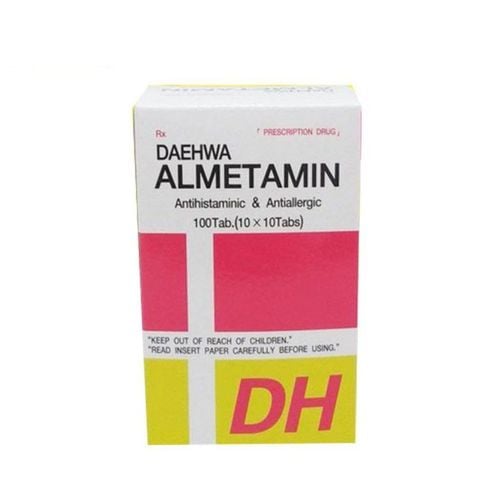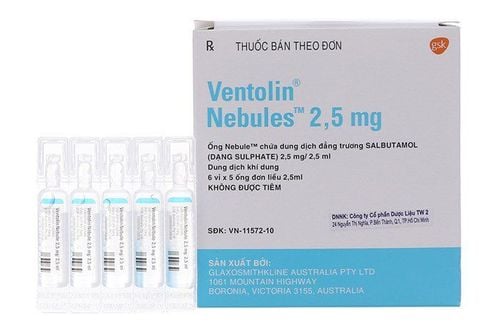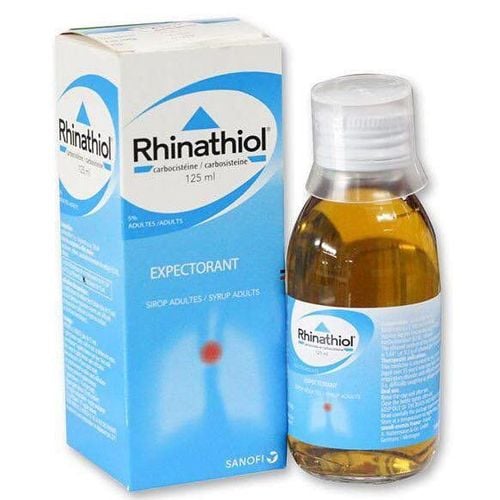Montiget 10mg is a medication prescribed for adults to prevent and treat chronic asthma, to reduce symptoms of seasonal and perennial allergic rhinitis. To use the medication correctly and minimize the risk of side effects, let's explore Montiget in more detail below.
1. What is Montiget?
Montiget contains the active ingredient Montelukast, which is formulated as a film-coated tablet. Montiget 5mg contains 5mg of Montelukast, while Montiget 10mg contains 10mg of Montelukast. Montelukast is a selective, competitive antagonist of the leukotriene receptor. Cysteinyl leukotrienes are metabolites of arachidonic acid released from various cells, including mast cells and eosinophils (types of white blood cells that fight infection/inflammation inside our body). When these metabolites bind to leukotriene receptors, they cause responses such as airway edema, bronchial smooth muscle contraction, and changes in cell activity, leading to asthma symptoms. Montelukast competes with cysteinyl leukotrienes to bind to these receptors, without causing any biological activity itself.
Regular use of Montiget may result in the following effects:
- Preventing wheezing and shortness of breath due to asthma and reducing the frequency of asthma attacks.
- Reducing symptoms of allergic rhinitis, such as sneezing, nasal congestion, runny nose, and itching. It can be used to treat perennial allergies in both adults and children over 6 months old.
2. Indications and Contraindications for Montiget 10mg
Montiget is indicated for the following conditions:
- Prevention and treatment of chronic asthma in adults, helping to prevent both daytime and nighttime asthma symptoms.
- Treatment for asthma in patients who are sensitive to aspirin.
- Prevention of bronchospasm triggered by physical activity. It can be taken before exercising to prevent bronchoconstriction during exercise.
- Treatment of seasonal and perennial allergic rhinitis in adults and children over 2 years old.
Montiget should not be used in the following cases:
- Patients are allergic to Montelukast or any other components of the medication.
- Montelukast is not indicated for the treatment of acute asthma attacks or in patients with severe, prolonged asthma that does not respond to standard treatments.
3. Dosage and Administration of Montiget
Montiget is available in film-coated tablets and should be taken orally with water.
Dosage:
- Adults and adolescents 15 years and older with asthma or seasonal allergic rhinitis: 10mg per day.
- Adults for the prevention of exercise-induced bronchospasm: 10mg, taken at least 2 hours before exercise.
- Children 6 to 14 years with asthma or allergic rhinitis: 5mg once daily.
- Children 2 to 5 years with asthma or allergic rhinitis: 4mg once daily.
- Children 1 to 2 years with asthma: 4mg once daily in the evening.
- Children 6 months to 23 months with perennial allergic rhinitis: 4mg once daily.
There is no need to adjust the dose for elderly patients or those with mild to moderate renal or hepatic impairment.
4. Side Effects of Montiget
When using Montiget, some unwanted side effects may occur, including:
- Common: Upper respiratory tract infection, diarrhea, nausea, vomiting, elevated liver enzymes, rash, fever.
- Less common: Anaphylaxis; abnormal dreams such as nightmares, insomnia, sleepwalking, anxiety, irritability, depression, hyperactivity, dizziness, drowsiness, seizures, nosebleeds, dry mouth, indigestion, muscle pain, itching, joint pain, cramps, fatigue, discomfort.
- Rare: Bleeding, attention disorders, memory loss, tachycardia, angioedema.
- Very rare: Eosinophilic infiltration of the liver, hallucinations, disorientation, suicidal thoughts and behavior; Churg-Strauss Syndrome (CSS), erythema nodosum, erythema multiforme.
If side effects occur, stop using the medication and consult your doctor or go to the nearest healthcare facility for prompt treatment.
5. Precautions when using Montiget
- Before using the medication, you should inform your doctor about your medical history and carefully read the instructions.
- Never use oral Montelukast to treat acute asthma attacks and always be prepared with appropriate emergency medication for such conditions. If an acute attack occurs, a short-acting inhaled medication should be used. Patients should consult a doctor immediately if they require more inhaler doses than usual.
- Montelukast should not be used as a sudden substitute for oral or inhaled corticosteroids. There is no data to support the reduction of oral corticosteroid doses when used in combination with Montelukast.
- Montiget contains lactose. Patients with rare conditions such as galactose intolerance, Lapp lactase deficiency, or malabsorption of galactose should not use this medication.
- During Pregnancy: Animal studies have not shown harmful effects related to pregnancy or fetal development. Data on pregnant women do not indicate any causal relationship between Montelukast and birth defects. Therefore, Montelukast can be used during pregnancy if the benefits clearly outweigh the risks.
- During Breastfeeding: Studies on rats show that Montelukast is excreted in milk. However, it is not known whether Montelukast or its metabolites are excreted in human breast milk. Montelukast can be used in breastfeeding women if the benefits outweigh the potential risks to the nursing child.
- Drug Interactions: Drug interactions may occur when Montelukast is used with other medications for the prevention and chronic treatment of asthma and allergic rhinitis. However, in drug interaction studies, the recommended dosage of Montelukast did not significantly affect the pharmacokinetics of other drugs, including theophylline, corticosteroids (such as prednisolone), oral contraceptives (ethinyl estradiol/norethindrone 35/1), terfenadine, digoxin, and warfarin. Caution is needed when used with drugs that affect the liver, particularly in children, when Montelukast is used with substances like phenytoin, phenobarbital, and rifampicin.
Additionally, do not use the medication if it shows signs of damage. Store in a dry place, away from direct light and moisture, with a temperature not exceeding 30°C.
Montiget is a prescription medication and should only be used under the guidance of a doctor. Therefore, you should not take the medication on your own and always consult your doctor when using it.
Visit the website of Vinmec International General Hospital for more information on health, nutrition, and beauty to protect your health and your family.
Please dial HOTLINE for more information or register for an appointment HERE. Download MyVinmec app to make appointments faster and to manage your bookings easily.













